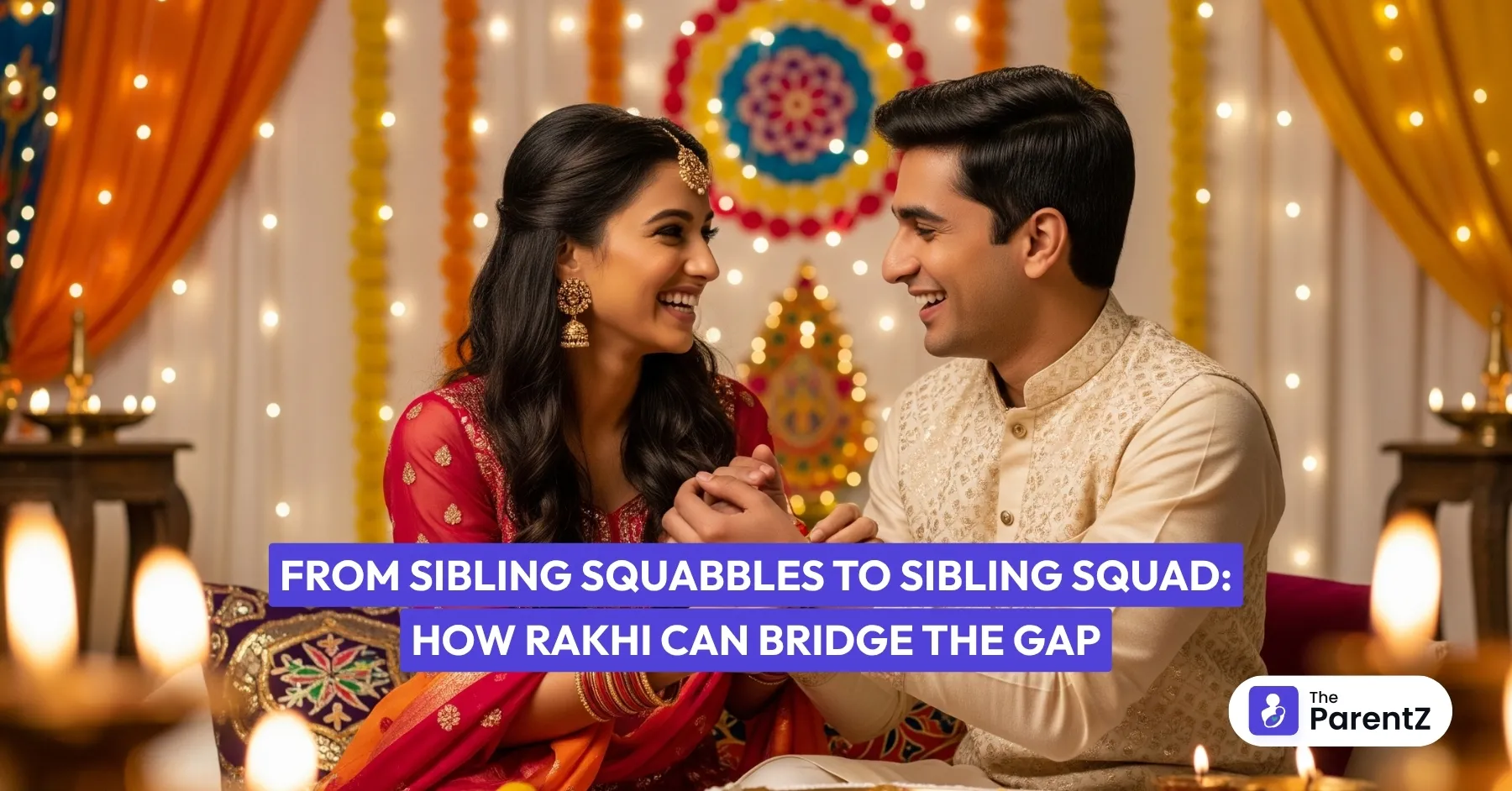Remember when you were seven and your brother broke your favorite doll? Or when your sister ate the last piece of your birthday cake without asking? Those days when sharing the TV remote felt like World War III, and complaining to mom and dad was your biggest weapon.
If you're an Indian kid, you know exactly what this feels like. Growing up with siblings means growing up with your first roommate, first competitor, and sometimes your first enemy. All rolled into one person.
But then comes Raksha Bandhan.
The Magic Thread That Changes Everything
Every year, when Shravan Purnima arrives, something beautiful happens. That same sister who used to hide your cricket bat suddenly sits next to you with a small plate decorated with diyas, sweets, and that sacred thread. Her hands might shake a little as she ties the rakhi around your wrist. It's not because she's nervous, but because somewhere deep down, she knows this moment means something big.
And you? The brother who once put salt in her milk glass? You're sitting there, letting her tie this thread, and for the first time in months, you're not planning your next prank.
That's the magic of Rakhi. It's not just a festival; it's a pause button on all the fighting, a reset button on all the hurt feelings.
From "I Hate You" to "I Got You"
When you're kids, Rakhi feels like just another ritual. Sister ties the rakhi, brother gives a gift, and everyone eats sweets. Simple, right? But as years pass, something shifts.
At age ten, the rakhi means "stop pulling my hair."
At fifteen, it means "don't tell Mom I came home late."
At twenty, it means "I'm scared about my future, but I know you're there."
At thirty, it means "no matter where life takes us, we're family."
Each year, the thread remains the same, but the promise gets deeper. The responsibilities get heavier, but somehow, your shoulders get stronger too.
The Growing Promise
Here's what happens with each Rakhi. That simple thread starts carrying more weight. It becomes a promise that says:
"I will answer your call at 2 AM when you're scared."
"I will fight anyone who hurts you."
"I will celebrate your success like it's my own."
"I will be your safe place when the world gets too much."
And brothers? They feel it too. That protective instinct that was always there, just buried under all the teasing and fighting, suddenly comes to the surface. The same hands that used to steal your chocolates now make sure you have everything you need.
Parents: The Silent Bridge Builders
Here's something we don't talk about enough: how much our parents shape this bond. Smart parents know that sibling relationships need nurturing, just like plants need water.
They stop comparing. Instead of saying, "Why can't you be like your sister?" they start saying, "You both are special in your own ways."
They create opportunities for siblings to be a team. Maybe it's asking them to plan a surprise for someone together, or giving them a joint responsibility.
They celebrate the bond. When they see you two getting along, they make sure to notice it out loud. "Look how beautifully you two are playing together!"
And during Rakhi? They make it special. They tell stories about their own siblings, they explain why this festival matters, and they make you feel like you're part of something bigger than just your own little fights.
The Evolution of Love
What's beautiful about the brother-sister relationship is how it evolves. It's like watching a caterpillar become a butterfly, but in slow motion, over the years.
In childhood, it's all about sharing and fighting. "That's mine!" "No, it's mine!"
In teenage years, it's about secrets and protection. "Don't tell anyone about my crush, but also, that boy is not good enough for you."
In young adulthood, it's about support and advice. "Should I take this job?" "Is this person right for me?"
And as adults? It's about being each other's constant. When friends change, when relationships end, when life gets complicated, that sibling is still there, still tied to you by threads stronger than any rakhi.
Raksha Bandhan: More Than Just a Festival
Every year, when sisters and brothers celebrate Rakhi, it's a reminder that this isn't just about tradition. It's about transformation. It's about taking two people who started life by competing for the same toys, the same attention, the same love, and slowly helping them realize that love multiplies, it doesn't divide.
The rakhi thread breaks after a few days. The color fades, the edges fray, and eventually, it falls off. But the promise? That stays forever, getting stronger with each passing year, each shared laugh, each wiped tear, each moment when one sibling shows up for the other.
From sibling squabbles to sibling squad - that's the journey Rakhi celebrates. It's messy, it's beautiful, it's frustrating, and it's magical.
And honestly? There's nothing quite like it.
So this Rakhi, when you tie that thread or have it tied around your wrist, remember, you're not just participating in a ritual. You're adding another layer to a promise that started the day your sibling came into your life and will continue long after both of you are gone. That's the real magic of Rakhi.





Be the first one to comment on this story.